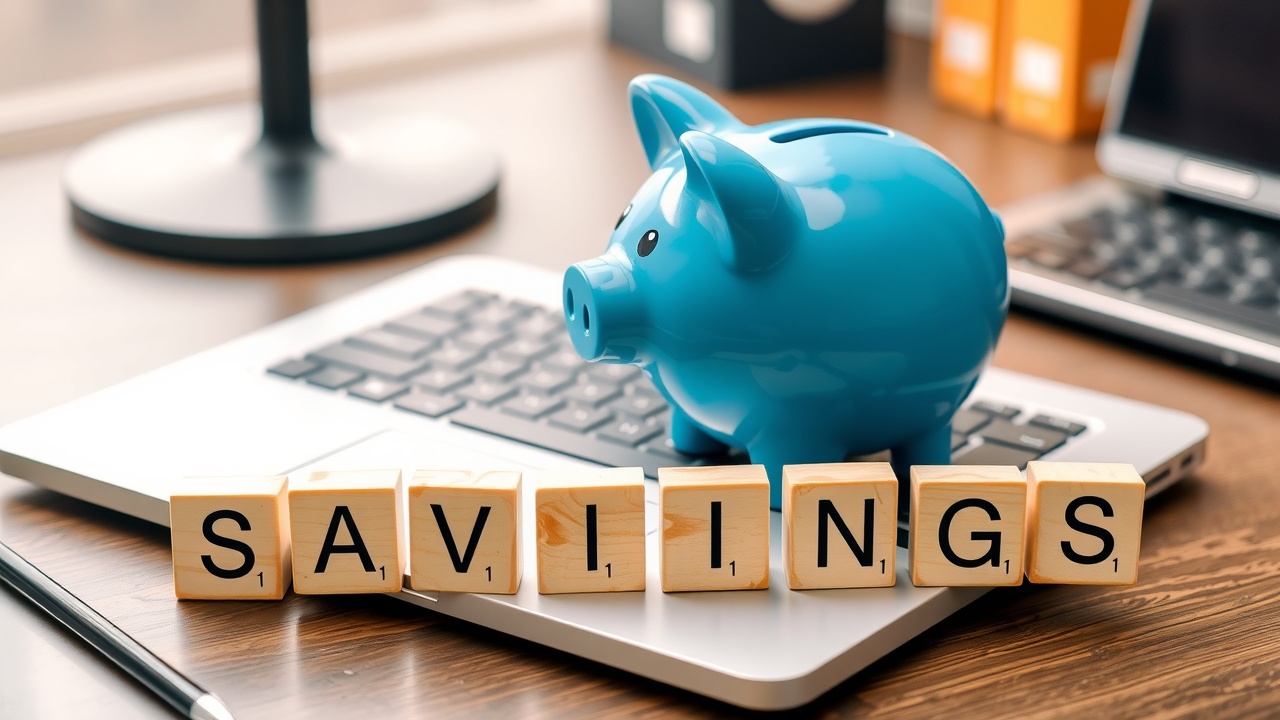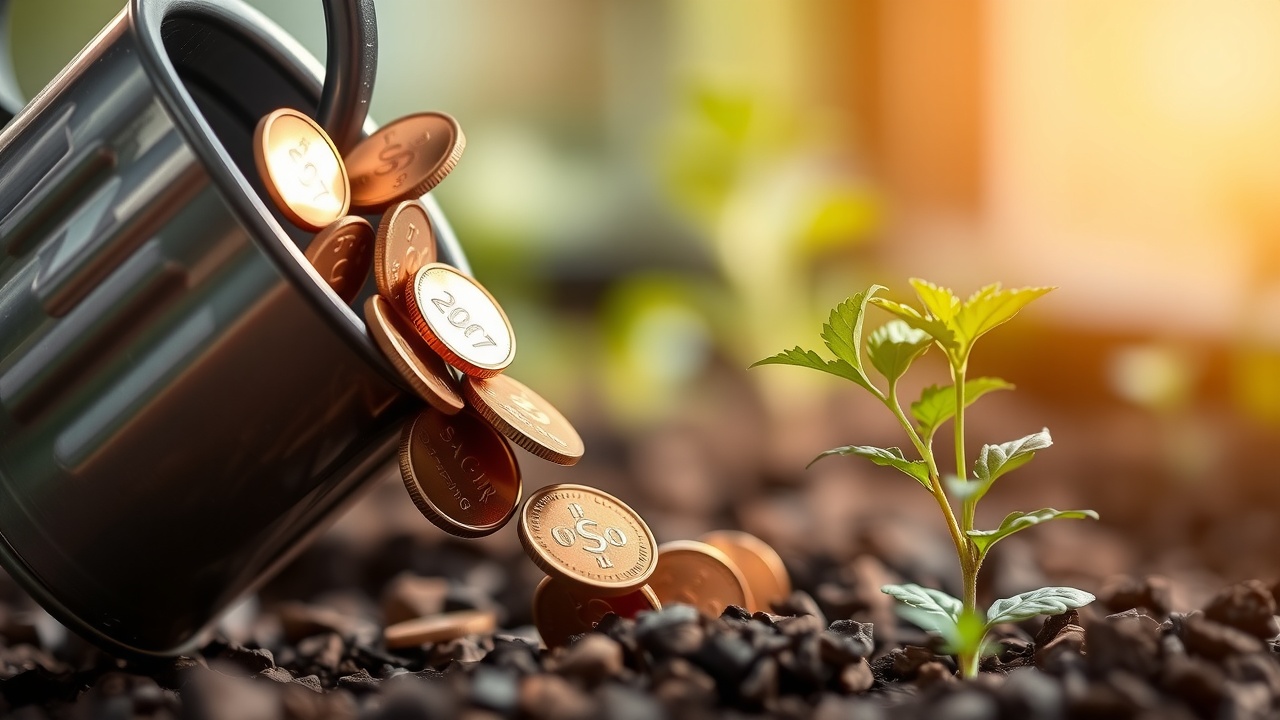
In this article, we examine the ideal savings amount for each decade of life and how to reach this goal
Taking charge of your finances requires knowing how much of your income you should be setting aside for savings.
Establishing a sound saving habit will make it much simpler for you to reach your more general financial objectives, such as saving for a down payment on a home, a wedding, or the purchase of your ideal vehicle.
If you're trying to figure out how much you should have in your savings accounts, it could be helpful to see how much money people your age typically save.
UK savings averages by age.
A study released in October 2024 by the Building Societies Association found that the median amount of savings in the United Kingdom is only approximately 9,000. Although those at the extremes of the scale skew this, the mean average is 16,232.
Age also contributes to the skew in these figures. Your chances of having a higher-paying job that enables you to save more money increase with your age. Additionally, you have more time to accumulate savings as time passes.
According to age range, the average person's savings account balance is displayed in the table below.
The Building Societies Association (through Raisin UK), October 2024.
We examine how much people usually have saved for retirement as they age in our average pension pot by age guide.
How much money should I save?
Determining the appropriate amount of savings for an individual is challenging because it depends on a variety of individual factors. According to Craig Rickman, a personal finance specialist at Interactive Investor, there isn't a "hard-and-fast rule to determine how much you should save by a certain age." Rather, "it really does come down to your specific financial goals and when you want to achieve them," the statement goes.
Saving money for your first home's down payment is one such objective. "Suppose you're twenty-five years old and wish to purchase a home in ten years," Rickman says. Building a sizable deposit over the next ten years is crucial to realizing your dream of home ownership, regardless of what other people are doing.
"It would be great to have a specific number for people to aim for when they're building their savings, but that's not how it works, because it depends on you," Sarah Coles, head of personal finance at Hargreaves Lansdown, tells BFIA, echoing this flexible approach to how much you should have in your savings.
Coles also stresses the significance of creating a robust safety net prior to investing all of your money in financing a wedding, a down payment on a home, or any other objective.
According to her, "the general rule is that when you're of working age, you should have enough cash in an easy access account to cover three to six months worth of essential spending."
However, the size of this fund will vary depending on your individual circumstances and what people consider essential spending. Coles continues: "You will likely feel more at ease keeping more in easy access savings if, for instance, you have multiple people depending on your income, you have experienced health issues in the past, or your income fluctuates."
But if you have a stable job, are healthy, have a larger family to lean on in times of need, and no one else is using your money, you might be content with less," she adds. The number of wage earners in the family and the insurance coverage you currently have should also be taken into account.
Even though it's advised that people have three or four months' worth of expenses saved, it can be challenging to actually create this safety net. Saving has "been particularly tough in the past few years," and Rickman is especially aware of this.
"We still haven't edged out of the harshest cost-of-living crisis in decades," Rickman says, pointing out that recent years have seen increases in the cost of rent, mortgages, food, and energy bills.
Furthermore, there are conflicting priorities with any extra money you do have. Therefore, it makes sense that things farther down the hierarchy, like retirement, might drop.
At what point should I begin saving?
It has become more challenging to start saving more because outgoings have been rising steadily in recent years, stretching wallets further. Start as soon as possible, though, because it's still crucial.
According to Rickman, it might be beneficial to "be realistic about how much you can afford to tuck away." Even though it can be challenging to decide to forgo enjoyment today in order to save tomorrow, he says that "if you can start shovelling a bit away now, however small, it can make a big difference to your lifestyle and wellbeing in years to come."
"Setting some financial objectives is a smart place to start. "You're more likely to develop the necessary motivation to not only start saving and investing but to keep things up if you're aiming for something personally fulfilling," he continues.
Coles supports this call for people to start saving their income by saying that "you could wait forever if you don't have enough set aside or if you're waiting for the time in life when your expenses go down and you have plenty of money."
As soon as you can afford it, it's worthwhile to do whatever you can," she continues.
What is the ideal amount for my emergency fund?
Even though nobody wants to consider it, many people will eventually have to deal with the regrettable reality of losing their jobs.
As such, establishing an emergency fund is a crucial part of your savings process. In the event that you do lose your job, you can use it to pay for necessities while you look for another one and avoid falling behind on rent or mortgage payments.
Additionally, having cash on hand is crucial in case you encounter an unanticipated problem in your life. Few individuals would want to be without a boiler in the dead of winter due to a lack of funds to replace it.
Ideally, your emergency fund should cover three months' worth of necessities, but it's always a good idea to leave some extra money in case you need it. This means that while you get back on your feet, you will be covered for a while.
Hargreaves Lansdown states that since the average monthly expenses for necessities are 2,058 dollars, the size of an average emergency fund should be approximately 6,174 dollars.
But, it's crucial to remember that the ideal amount of your emergency fund will depend solely on how many expenses you incur each month, so it's worth doing your own math.
How can I increase the amount I save?
Savings can be increased in a variety of ways.
An Individual Savings Account (ISA) is one of the most common ways that people save money and let it grow over time.
ISAs are more tax-efficient than traditional savings accounts because you can deposit up to £20,000 of your savings into the account each year without having to pay taxes on the interest you earn.
ISA comes in a variety of forms, such as the cash ISA and the stocks and shares ISA.
The value of a stocks and shares ISA fluctuates based on the stocks you invest in, whereas a cash ISA pays out a fixed interest rate.
Regular savings accounts, which come in a variety of forms with varying terms and restrictions on the amount and speed of withdrawal, are an option if your ISA limit has been reached.
If you want to beat inflation with your emergency fund, an easy-access saver is a good choice. These accounts are ideal for those who need to access their money quickly because they permit users to take money out of the account without incurring penalties.
Other choices include fixed-term savings accounts, which allow depositors to earn a guaranteed interest rate for a predetermined amount of time. Five-year terms are possible.
The top cash ISAs and savings accounts are listed by the BFIA on a regular basis.
How much should I save before making an investment?
While investing can help you accumulate wealth over the long term, saving is best for short-term objectives (less than five years). In our guide to investing versus saving, we examine the benefits and drawbacks.
Even with the potential profits, the stock market's intricacy intimidates many people, and some may believe they don't have enough money saved to begin investing.
Even though your money will grow more significantly if you invest it, a savings account will still yield predictable, and typically inflation-busting, gains.
Building a safety net before attempting to increase your wealth through investments is a smart idea, even though you don't necessarily need enough savings to get started.
This is due to the fact that investing entails risk; money can be lost as well as gained in the stock market. Traditionally regarded as safe investment vehicles can perform poorly, so it's important to ensure that your livelihood won't be negatively impacted if your investments fail.
"Even if you're eager to begin investing, there are a few things you need to take care of first," Rickman tells BFIA. This includes setting up a savings account for emergencies.
One important factor to think about when considering a possible stock market venture is debt. According to Rickman, "first, seriously consider paying off any high-interest debt, such as credit cards." This is due to the fact that the annual interest rate charged is probably going to be much higher than any possible returns on investment.
It's also critical to be ready to invest for the long haul. Rickman advises, "Be sure you're ready to invest for five years or more." "While there is no guarantee of stock market returns and value fluctuations are possible, time will help to mitigate any volatility.
All things considered, there is no set amount of money you should have saved before you begin investing; however, as previously mentioned, it is a good idea to have some money in easily accessible products to ensure that your entire savings won't be impacted by a possible market downturn.
At 30, how much should I have saved?
Since many people's twenties were characterized by high living expenses and comparatively low wages, it is challenging to accumulate sizable savings.
However, by the time they reach their 30s, people are usually more established in their careers and have begun to move up the career ladder, which results in a higher salary.
People's top priorities will also be saving for important life events like a wedding or the purchase of their first home.
The ONS reports that the average age at which people marry is 31 minutes for women and 32 minutes for men. As for the average age at which people purchase their first home, Yorkshire Building Society data shows that it is 33 (35 for Londoners).
To put it simply, it's a good idea to start managing your money seriously by the time you're thirty years old. This will allow you to live comfortably within your means and have enough money to accomplish your goals in life.
It might be a good idea to look at the average amount of 13,095 that people have saved between the ages of 35 and 44 and determine whether or not this amount fits with your own personal financial objectives.
At 50, how much should I have saved?
As your 40s come to an end, you might discover that you are beginning to make a lot more money than you did before because these are typically the most productive decades of your life in terms of your career.
According to a House of Commons Library report based on 2024 ONS data, the median weekly wage for individuals in their 40s is 823, which is 33 percent more than what they would have been making in their 20s.
Further increasing household income and enabling more savings is the fact that many people will live with a long-term partner and share finances by the time they are 50.
Therefore, even though there isn't a set amount of money that you should have saved by the time you're fifty, the average for people in the 5564 age range is 19,740, so this could be a good starting point.














Leave a comment on: What is the average amount of money saved by age?